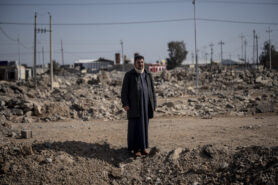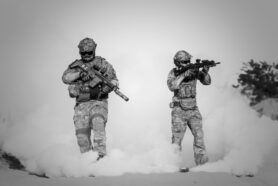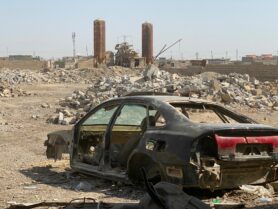Practices of remote warfare have opened up new areas of fighting and has increased risk to civilians as a result, according to this position paper from PAX for Peace.
PAX call for a broader conceptualisation of civilian harm, one going beyond the traditional, narrow definition as deaths and physical injuries sustained by civilians as a direct result of military action. From their perspective, civilian harm should encompass not only individual physical injury but also harm to “community wellbeing.” This may be caused either directly by military operations or indirectly by the destruction of critical infrastructure, disruption of access to basic needs and services, or the loss of livelihood.
There are a host of political, moral, strategic and humanitarian reasons why civilian harm should be systematically tracked, analysed and responded to. One of the most salient for scholars of remote warfare is the necessity of ensuring parliamentary and public oversight of military interventions. Tracking tools and investigation mechanisms render a fuller picture of the consequences of military operations, and thus allow for more meaningful deliberation about whether or not to intervene in the first place.
A valuable primer on an important topic, this paper deserves to be read widely and considered carefully.
Source:



